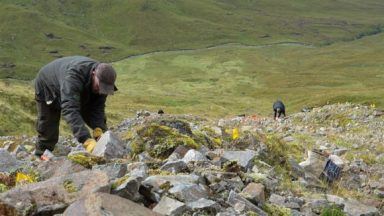Bosses at NHS Highland believe “very substantial progress” has been made in changing its culture of bullying, despite almost two-thirds of complaints being unresolved.
The health board was heavily criticised after an investigation last year found hundreds of NHS staff across the region may have endured inappropriate behaviour.
The Sturrock review found a “significant majority” of the 340 people it spoke to were either currently experiencing, or had suffered in the past, fear, intimidation and inappropriate behaviour at work.
Giving evidence to Holyrood’s audit committee on Thursday, NHS Highland chairman Professor Boyd Robertson said the report was “sobering” for the organisation and “alarming for our patients and communities”.
He said: “That was a troubling and defining moment for NHS Highland in highlighting long-standing issues of bullying and harassment, which had a significant impact on current and former employees.”
Prof Robertson argued that “notable progress” has been made, including a formal “healing process” involving whistleblowers who raised concerns and NHS Highland’s HR team.
He revealed 25 of the 39 complaints made by staff in the past year were not yet resolved, while 14 had been dealt with.
Describing the organisational changes as a “long initiative”, Prof Robertson said: “We’re on a journey, you can’t transform the culture of an organisation overnight and it’s more important that we put the right measures in place than we do it hastily.”
He said he had been “taken aback” by workers’ experiences, and told MSPs: “I think we’ve made very substantial progress in the year-and-a-half since Sturrock reported.
“Some might criticise us for not doing it quickly enough, but we are wanting to take a considered view of it, and to get things as right as we can because we think this could be a template for other boards in Scotland.”
He also said the health board’s improving financial situation, including meeting the “substantial savings target” of approximately £28m in 2019-20, has been a “tremendous achievement”.
In 2017-18, NHS Highland recorded a loss of £17.8m, followed by £18m in 2018-19.
NHS Highland chief executive Pam Dudek said the board’s financial position is one of the four biggest risks facing NHS Highland, alongside its performance, workforce and the organisation’s “culture”.
Asked to justify spending £1.2m on external consultants PwC, Ms Dudek told MSPs they had helped deliver cuts and savings “in a fairly swift way”.
Ms Dudek said the contract with PwC had now ended and the “programme management office” work is being done internally, although she was unable to say how much this was costing.
Witnesses were also challenged about queues of people who had to wait outside in the cold and rain for flu jabs witnessed recently in parts of the region.
Ms Dudek said: “Firstly I would probably want to apologise again profusely for the experience that people had at the weekend.”
She added the health board was “naive” not to consider the “wider welfare” of patients and the practical issues of appointments in rural areas that led to many people waiting outside for vaccinations.
Follow STV News on WhatsApp
Scan the QR code on your mobile device for all the latest news from around the country



























